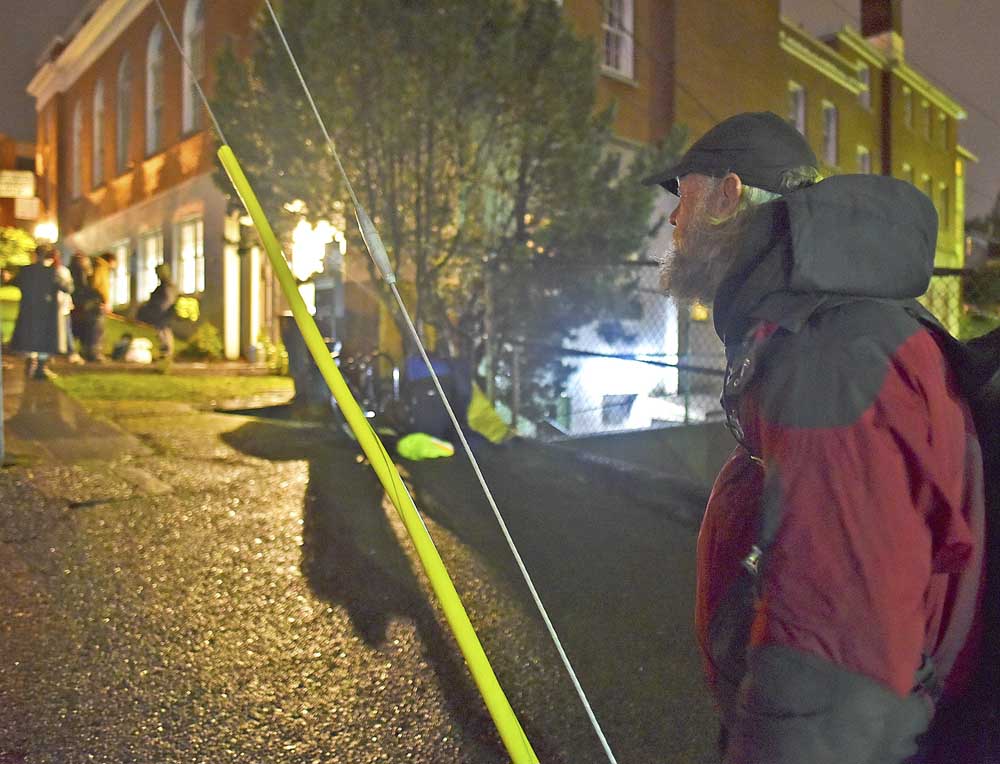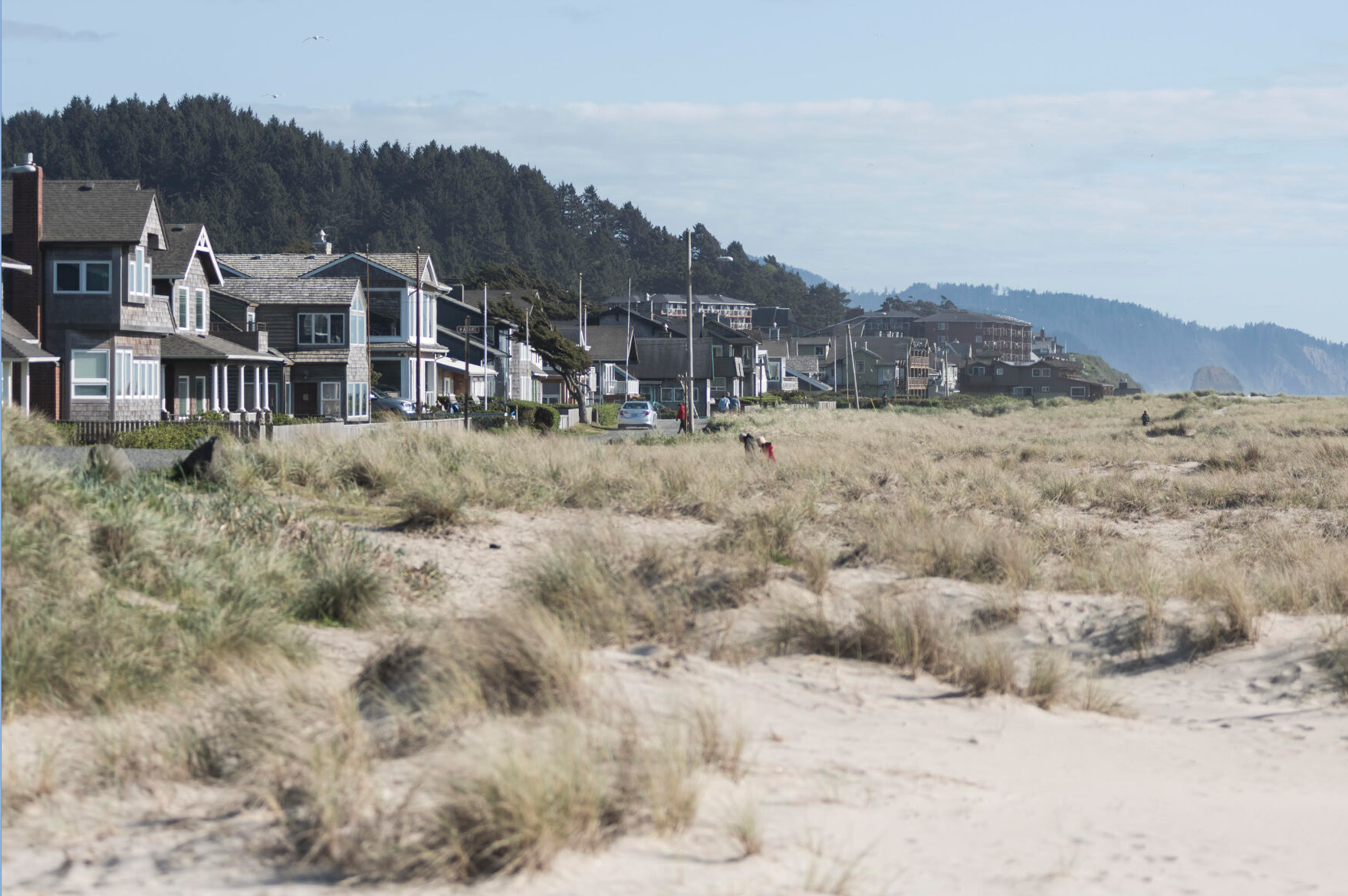Our View: Let’s notice people too easy to ignore
Published 12:30 am Tuesday, December 24, 2019

- The Astoria Warming Center is hosted by First United Methodist Church.
Personal freedom, heartbreak, shame, law and order, dignity, cost to taxpayers — this is only some of what we must balance as the coast struggles with the interlocking dilemmas of homelessness and mental illness.
Trending
Americans aren’t required to have settled residences and some choose not to. We’re reminded of this by a recent police report: “A suspicious man walking down the road near Smith Creek, with a huge backpack, said he was ‘on an adventure’ when contacted.” Good for him.
Some interactions between itinerant or homeless people aren’t so lighthearted.
“Cop-to-bottom” missteps riddled two arrests in Pacific County, Washington, this summer. The circumstances vary a bit, but Washington state law was violated when a man and woman were separately picked up on minor charges, assessed as having mental health issues, and then allowed to languish in jail for two months. After unjustifiable delays, they finally were sent to Western State Hospital near Tacoma where each lost another month of freedom while staff made sure they were well enough to help defend themselves in court.
Trending
After three months’ detention, one pleaded guilty to charges; the other will likely follow suit. Already incarcerated far longer than they should have been, neither faces more jail time. They got caught up in a system specifically designed to protect mentally ill people from getting trapped as they were. Lacking local connections and unable to get out on bail, each suffered much beyond the discomfort and humiliation of involuntary confinement. There was no legitimate compelling state interest to justify keeping such low-level offenders locked up for so long.
Everyone obviously should obey the law and the two defendants weren’t blameless. Most of the time, however, mature policing resolves such conflicts without arrest. Jailing itinerants who don’t intend to stay in a county is a waste for all involved. A sensible prosecution decision would have been to set them loose after a week or two, with a suggestion to move on. An experienced judge would have insisted on a speedy resolution.
As it turned out, taxpayers footed the bill for $57,000 in psychiatric care, up to $12,000 in jail expense, and untold sums for justice system salaries.
In Astoria last week, the death of a 72-year-old homeless woman with deep community ties shines a spotlight on other aspects of this sad situation.
Still well-anchored in the community, she and her boyfriend became unmoored from conventional housing in 2018, and took to the streets. Gail Griffey had mood swings and numerous contacts with police over minor matters. She was brought up on charges after a tantrum in a convenience store. On the other hand, her normally cheerful demeanor brightened many lives.
Lack of real estate didn’t make her any less of a real and worthwhile person. She didn’t deserve to fall through the cracks.
As a mental professional told one of the Pacific County defendants, we all operate along a spectrum of sanity. Griffey’s choices after an eviction suggest that her mental processes were unconventional. But she wasn’t believed to be so incompetent that official intervention was mandatory. Clatsop Community Action would have provided help if she had been willing to undergo an assessment.
Like the old man in “Groundhog Day” who no amount of caring could nurture through a life-taking cold winter night, sometimes good intentions aren’t enough. Answers are hard to find, but it’s worth imagining — and perhaps acting upon — a more proactive and systematic approach to getting people off city streets and into better situations, at least during poor weather.
What should we do?
Criminalizing mental illness has been rejected by most political leaders and citizens. But jails still too often become horribly inadequate sanctuaries for people in the midst of struggling with brain ailments. This is no reflection on police or jail staff, who too often find themselves in no-win situations when minor infractions attract attention.
Front-line officers have to exercise constraint and mercy. But at the same time, communities and law enforcement cannot and should not turn a blind eye to homeless camps that blight areas such as vacant land at the North Coast Business Park and behind Goodwill in Warrenton.
While awaiting state and national solutions, including a far better safety net for people in mental crises, perhaps the best available answers are the ones that always come most forcefully to mind in the holiday season. Let’s notice the people it’s too easy to ignore, help them and avoid arresting them when we can, and speak out for humane affordable housing for all our fellow Americans.









